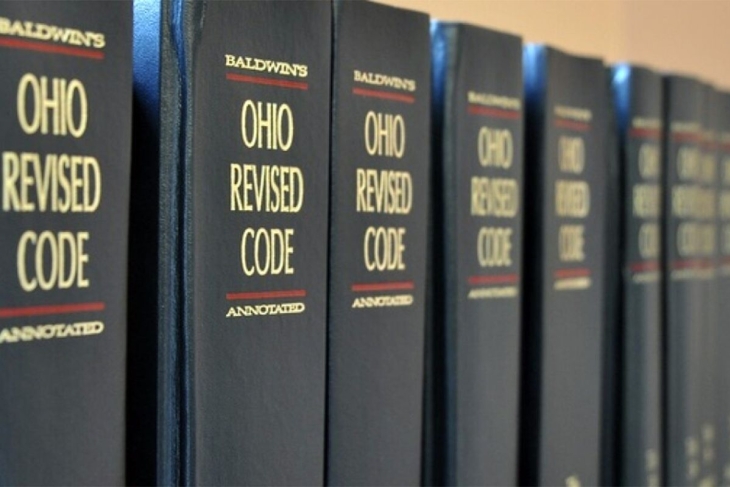District leaders—from the board to superintendent to principal—are responsible to parents and communities for running schools that maintain high expectations and deliver results for students. To create these types of schools, they must be able to effectively manage staff. Leadership should be able to reward employees who push for rigor and go the extra mile, while also having authority to put an end to bad habits and poor practices.
Unfortunately, a raft of state laws ties the hands of those charged with leading Ohio’s school districts. Loosening these constraints is important, but it can be difficult to pinpoint how to do so. That’s why two recent court cases merit attention, as the questions in both cases involve statutes detailing procedures that district leaders must follow in order to dismiss employees who are not meeting expectations. State legislators should remove these job-protection provisions to help ensure that districts’ personnel decisions are respected and final, instead of being open to endless legal wrangling.
Job protections for non-tenured teachers
The first case involves a non-tenured teacher who was hired by Kent City School District on a one-year limited contract. According to court documents, the teacher, Shawn Jones, received a three-day suspension for leaving school early on multiple occasions. Even after being disciplined, he went AWOL for a day later in the year, leaving his class completely unsupervised. Unhappy with his job performance, the district superintendent recommended that the school board non-renew his contract. The board voted to do so, thus presumably terminating Jones’s employment at year end.
The legal buzz saw that Kent City ran into is a statutory requirement that districts perform “at least three formal observations” of a teacher before they non-renew a contract. Jones appealed on grounds that the district did not meet this requirement. While both parties acknowledged that two formal observations had been completed, Jones contended that the third was not properly conducted. His case went to the Ohio Supreme Court, and in a recent decision, the justices overturned the board’s decision.
The problem here isn’t the court ruling but rather the underlying statute that requires districts to jump through the three-observation hoop. In most other professions, an employer can end an employment relationship without a “formal observation” (much less three of them). This creates workplaces where employees who put in less than full effort—as Jones seems to have been doing—are quickly shown the door. State legislators should eliminate the observation requirement to non-renew a limited contract. This would help ensure that a school board’s decision to dismiss a non-tenured teacher at the end of a contract is final. Lawmakers could take it a step further, and make it easier to remove non-tenured teachers before their contract term ends by explicitly stating that an “ineffective” performance evaluation—the lowest possible rating—is “good and just cause” for immediate dismissal (this should apply to tenured teachers, too).
Job protections for district administrators
Another case—this one currently being appealed to the Ohio Supreme Court—deals with policies that districts must have in place to suspend an administrator contract. According to court records, Switzerland of Ohio Local School District underwent leadership changes several years ago, and the new superintendent recommended the dismissal of five central-office administrators by suspending their contracts.[1] The school board agreed with the recommendation, but four of the administrators soon after filed a lawsuit claiming that the district’s contract suspension policy did not meet statutory requirements. They pointed to provisions in state law that require districts to establish policies that, at a minimum: (a) articulate one or more reasons for suspending a contract, (b) outline procedures for determining the “order of suspension…within the employment service areas affected,” and (c) include provisions about possible restoration of employment after a contract has been suspended.
Earlier this year, a state appellate court found that the district policy aligned to state requirements, though as noted above, the case remains open. But the bigger question for policymakers is whether administrators—given their authority, responsibilities, and higher salaries—should be entitled to job protections in the first place. Should state law require school boards to directly express a reason for letting go of an administrator, something that could lead to controversy or, as in this case, litigation? And why must boards create a framework for determining which administrator is dismissed before another? What if that formula relies on seniority rather than performance and requires them to dismiss a talented and well-respected junior administrator rather than the senior one they’re actually seeking to remove?
State lawmakers should repeal these requirements. In doing so, they would allow boards and superintendents to more effectively manage their administrative teams, which is especially critical during leadership transitions such as Switzerland was going through. Bold legislators could go even further and simply permit school boards to hire administrators via “at-will” employment, whereby the board could let go of an employee at any moment (and conversely he or she could leave at any time). This arrangement, which is common in the private sector, would provide school boards with maximum flexibility and stronger oversight of their leadership teams. But it’s currently forbidden, as state law entitles administrators to an employment contract. Critics may argue this could lead to tyranny and unfair firings, but boards would still be held in check, as administrators—including talented ones worth their weight in gold—could easily leave for opportunities elsewhere if they are frustrated with their bosses. Communities would also hold school boards accountable, whether by voicing their concerns at meetings about what they believe to be a wrong personnel decision or via ballot box.
* * *
Effective school leadership places families and students at the center of the mission, but that’s hard to do when outdated state laws protect adult interests. These court cases shine light on just a couple policies that state lawmakers should fix immediately, as doing so would be steps toward more streamlined school management. Of course—as detailed in this report—lawmakers should address other obstructions, including tenure laws that make it nearly impossible or extravagantly expensive to dismiss low-performing teachers with seniority. They should also be willing to tackle the biggest blockade of all: collective bargaining and bloated employee contracts that tie the hands of school leaders in all sorts of ways. Yes, removing these obstacles is apt to rankle the unions. But doing so will make it easier for district leaders to lead, and allow them to build teams of dedicated educators who give their all to serve students.
[1] A suspended contract severs the employment relationship. However, administrators whose contracts have been suspended may be “recalled” by their employer. See the definition of a “suspended” contract in these districts’ policies.




